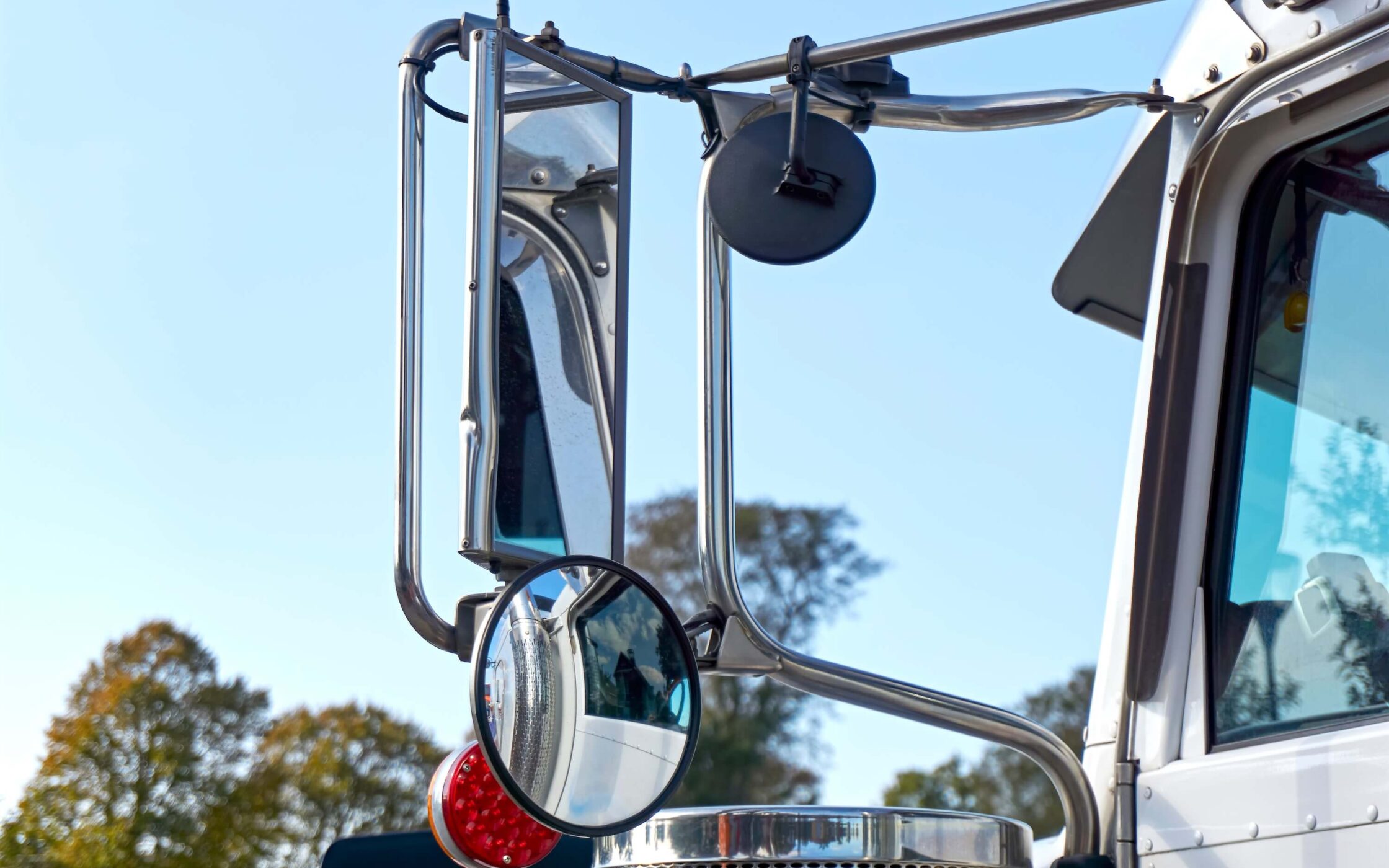Trucking companies and their insurers may deny liability after an accident to avoid paying out substantial claims. If you’re facing a denial, you should know your trucking accident legal options and the necessary steps to challenge the defendants.
The trucking company’s legal team and the insurance adjusters may dispute fault, question the severity of your injuries, or attempt to shift blame onto you. Without strong legal representation, you could be left facing mounting medical bills, lost wages, and pain and suffering with little to no compensation.

Why a Trucking Company Denies Liability
Trucking companies, their insurers, and legal teams are skilled at minimizing payouts and shifting blame. Here are some common reasons behind a truck accident liability denial:
- Blaming the Other Driver: They may argue that you were partially or fully responsible for the accident.
- Questioning Causation: They may claim that your injuries were pre-existing or unrelated to the crash.
- Lack of Evidence: If critical evidence is missing, the company may dispute the details of the accident.
- Third-Party Liability: They might argue that another party, such as a maintenance company or manufacturer, was at fault.
- Independent Contractor Defense: If the truck driver is an independent contractor, the company may try to avoid liability by distancing itself.
- Act of God or Mechanical Failure: Some denials cite unexpected weather conditions or truck malfunctions.
Legal Actions to Challenge a Liability Denial
Filing a Claim with the Trucking Company’s Insurer
Your attorney can submit a formal demand letter detailing the trucking company’s negligence, supported by evidence such as black box data and accident reconstructions.
Negotiating with the Insurance Company
Insurance adjusters are known to push back on claims, but a skilled lawyer can negotiate aggressively to secure a fair settlement.
Filing a Personal Injury Lawsuit
If the trucking company continues to deny liability, you can file a lawsuit to compel them to respond. This allows you to:
- Obtain additional evidence through discovery (e.g., subpoenas for company records, depositions of employees)
- Bring expert witnesses, such as accident reconstruction specialists, to testify
- Present your case before a judge or jury if necessary
Pursuing a Third-Party Claim
If another party contributed to the accident (e.g., a parts manufacturer for faulty brakes), you may also have grounds for a separate claim.
Types of Negligence In Truck Accident Cases
Our truck accident lawyers at Gingras Thomsen & Wachs will immediately investigate the accident to identify the following types of negligence of the truck driver and trucking company in your case:
Truck Driver Negligence
Truck drivers can engage in dangerous behaviors that increase the risk of accidents, including:
- Drowsy Driving: Long hours on the road lead to fatigue, impairing reaction time and decision-making.
- Fatigued Driving: Exceeding legal driving limits without proper rest increases the risk of errors.
- Distracted Driving: Using mobile devices, eating, or adjusting in-cab technology diverts attention from the road.
- Aggressive Driving: Speeding, tailgating, and unsafe lane changes endanger other motorists.
- Driving While Intoxicated: Alcohol or drug impairment reduces coordination and judgment.
- Speeding: Exceeding speed limits makes it harder to stop or maneuver safely.
- Other Negligent Actions: Failing to yield, running red lights, or improper merging can cause severe collisions.
Trucking Company Negligence
To establish liability, our attorneys will investigate how the trucking company’s policies and practices contributed to the accident, including:
- Pressuring Drivers: Employers may set unrealistic delivery deadlines, leading to Hours of Service (HOS) violations.
- Unsafe Job Incentives: Rewarding excessive driving hours can lead to fatigue, distraction, or impaired driving.
- Negligent Hiring Practices: Failing to screen, train, or supervise drivers properly increases risk.
- Lack of Background Checks: Hiring drivers with poor driving records or safety violations puts others in danger.
- Employing Inexperienced Drivers: To fill workforce gaps, some companies hire underqualified drivers.
- Inadequate Supervision: Skipping medical fitness tests, drug screenings, or safety evaluations leads to unchecked risks.
- Poor Record-Keeping: Failing to maintain driver logs and HR records can conceal violations.
- Cutting Costs on Maintenance: Skipping routine inspections or using faulty equipment can lead to mechanical failures.
- Negligent Use of Technology: Installing in-cab communication and entertainment systems that distract drivers increases accident risks.
- Third-Party Negligence: Improper cargo loading or negligent maintenance by outsourced vendors can cause accidents.
By identifying these negligent actions, we can build a strong case to hold both the driver and the trucking company liable for your injuries and losses.
How Our Truck Accident Lawyers Prove Liability
In truck accident claims, the injured victim bears the burden of proof. Even if you know the truck driver’s negligence caused your accident, your testimony alone isn’t enough to hold them or their employer accountable. You must provide substantial evidence to demonstrate their fault.
At Gingras Thomsen & Wachs, our truck accident attorneys conduct a thorough investigation to build compelling evidence, including:
- Photos and Videos from the Crash Site: Capturing vehicle damage, road conditions, and skid marks helps establish fault.
- Forensic Evidence from the Scene: Physical evidence like debris or impact marks can reconstruct how the accident occurred.
- Surveillance Camera Footage: Traffic cameras or nearby business security footage can reveal the crash in real time.
- Truck’s Dashcam Footage: Onboard cameras may capture the driver’s actions before the crash.
- Eyewitness Statements: Testimony from other motorists, pedestrians, or bystanders near the accident scene can corroborate your claim.
- Police Report: The official accident report includes critical details of any violations of trucking regulations and preliminary fault assessments.
- Medical Reports: Documentation of your injuries connects them to the crash and helps determine personal injury claim damages.
- Electronic Data Recorder (Black Box) Evidence: This device records speed, braking, and other driving behaviors before impact.
- Accident Reconstruction Analysis: Specialists use scientific methods to recreate the accident and establish causation.
- Truck Driver’s Hours of Service Logs: These records reveal whether the driver violated federal rest requirements.
- Trucking Company’s Dispatch Logs: Examining communication records can show if the employer pressured the driver to speed or skip rest breaks.
- Freight Manifest Copy: Improper cargo loading or excessive weight may have contributed to the accident.
- Truck Inspection Reports: Records indicating poor maintenance or mechanical issues can demonstrate negligence.
- Truck Driver’s Driving and Criminal Record: A history of reckless driving or past violations strengthens your case.
- Medical Fitness and Drug/Alcohol Test Reports: Evidence of impairment or unfit medical conditions can be key to liability.
- Testimonies from Other Employees: Fellow truckers or company insiders may reveal unsafe policies or employer pressure.
- Third-Party Liability Assessment: We investigate whether cargo loaders, maintenance providers, manufacturers, or brokers contributed to the accident.
By gathering and presenting this evidence, we build a strong case to prove liability and help you recover the compensation you’re owed. We will also guide you about avoiding any statements that may adversely affect your claim, including any truck accident blog posts or social media engagement.
Our Truck Accident Lawyers Will Fight to Maximize Your Compensation
Aggressive Negotiation Backed by Trial Preparation
At Gingras Thomsen & Wachs, we approach every truck accident case with the mindset that it may go to trial. From the outset, we gather evidence, consult experts, and construct a compelling case to establish trucking company liability. This trial-ready strategy strengthens our negotiating power, pressuring insurers to offer fair settlements.
Proven Track Record of Settlements and Verdicts
With more than $200 million recovered for clients, our attorneys have a proven history of achieving large financial compensation for truck accident victims. Insurance companies recognize our ability to take cases to court, which usually leads to stronger settlement offers to avoid litigation risks.
Prepared to Fight in Court if Necessary
If negotiations fail, we’re prepared to present your case before a jury. Our skilled litigators effectively communicate complex evidence, persuading jurors of the trucking company’s negligence. We fight relentlessly to secure maximum compensation for our clients.
Relentless Advocacy, Proven Results
With Gingras Thomsen & Wachs, you receive aggressive representation backed by decades of experience and a record of success. Our reputation, resources, and commitment ensure that trucking companies and insurers take your case seriously, giving you the best chance at justice.
To schedule your free consultation, call us at 855-954-1186 or contact us online.






